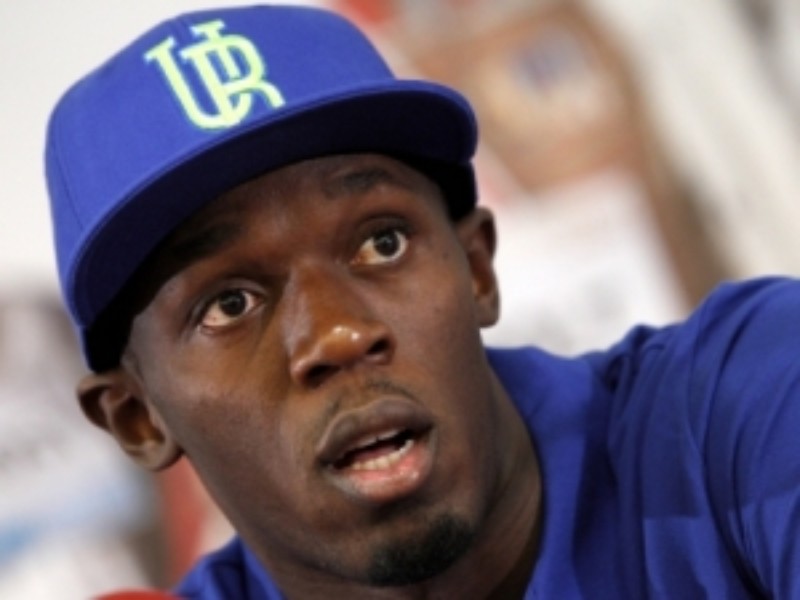If it were up to his father, his coach, his sponsors, the people and the Government of Jamaica, Usain Bolt would not quit track and field at the end of the 2017 season.
No one wants to see the legendary sprinter exit the stage just yet at the “tender” age of 30 years.
Ever since 2007 when he finished second behind Tyson Gay in the 200m at the World Championships, the anticipation has been high whenever Bolt puts on a pair of spikes to run.
In 2007 in Osaka, Japan, a fresh faced Usain Bolt with a simple “pinky finger point” and a raise of the arms to the heavens when he was introduced, lost to Tyson Gay. Coming around the turn with a slight lead, Bolt was surpassed by the shorter Gay who took control of the race down the stretch to win in 19.75s.
It was the last time that the American would finish in front of the boy from Trelawny over his athletic career.
At 6ft 4in tall, he was deemed too tall to run the 100m, but after breaking the world record in New York City on May 31, 2008, everything changed.
Bolt broke the previous record of 9.74 seconds held by countryman Asafa Powell that was set on that memorable date of September 9 in 2007, lowering it to 9.72 seconds in rainy conditions and shutting up his doubters after he had run 9.78s at the Jamaica Senior Championships a week earlier.
A year later Bolt returned to the Asian continent stronger, faster and the world record holder over 100m — an ominous sign for the rest of the world’s best sprinters.
The Olympic Games held in Beijing, China, became the coming out party for Bolt and Jamaica’s track and field, as the “Pocket Rocket” Shelly-Ann Fraser stunned the world to win the women’s 100m final in a most memorable race, where Jamaica finished 1-2-2 and Pryce became the first Jamaican female to win a Olympic 100m gold medal.
However, for the legend it was the beginning of the greatest era in track and field for himself and his beloved country, Jamaica. Three gold medals and three world records in the 100m, 200m and 4x100m relays inside the “Bird Nest” stadium left the world of track and field in awe.
His times of 9.69 seconds in the 100m final while thumping his chest with five metres to go and breaking the world record, and in the 200m which he won by a city block, had experts searching for superlatives to describe the performance of the big man.
His showmanship before and after his races also won him millions of fans, but one or two detractors as well. For the most part, however, his antics became a part of his trademark, including his now world famous “Lightning Bolt” pose that photographers race to capture. His trendy dance moves are also popular with fans.
Bolt’s charisma and charm, as well as his excellence on the track, have made him a marketer’s dream, and he has certainly cashed in on this as he will earn US$5 million a year as PUMA ambassador starting in 2018.
Three consecutive gold medals at the Olympic Games in both the 100m and 200m have made him the greatest sprinter of all time, but what he has put into his persona and global appeal also makes him the greatest track and field athlete of all time.
This was corroborated by President of the IAAF Lord Sebastian Coe who will be engaging the athlete (after he hangs up his spikes) to help to continue grow the sport.
After a decade at the top, time has finally started taking a toll on Bolt and the hunger, it seems, is no longer there. Having achieved all that he could have wanted, he now finds it harder to motivate himself to train.
So the legend will make the World Championships in London, England, in August his last hurrah. He will end his illustrious career by running in the 100m only. This comes as a surprise to many as he favours the 200m, but this may be the greatest move of his storied career and one which could prove crucial in preserving his unbeaten legacy at major athletics championships since 2008.
Why is this so? Wayde Van Neikerk, the South African who set the world record in the 400m final at the Olympic Games in Rio de Janiero in Brazil last year and who has continued with his impressive form this season, has indicated that he will be contesting the 200m at the World Championships in London.
It is not known if he could actually beat Bolt in a 200m contest, but what is certain, is that Van Niekerk is creeping up on the world record, and with much younger legs and a greater hunger the South African is a real threat to the Jamaican superstar.
The tragic loss of his dear friend Germaine Mason, who died in a motorcycle crash earlier this year, set back the training of the ‘ageing’ Bolt, who took the loss very hard. That coupled with the perennial back problems which will require realignment in Germany means that the big man still has some catching up to do as he has looked sluggish in his early season races.
Van Neikerk isn’t the only threat that Bolt faces, as his training partner, friend and the man he has dubbed “heir apparent” Yohan Blake, is returning to real form this season, claiming the sprint double at the National Championships in June.
The threats are real and rising as the younger, hungrier athletes take aim at the bull’s eye on Bolt’s back. Too many athletes, in a variety of sports, have overstayed their welcome and diminished their own legacy by doing so. Bolt is smart and is likely to leave the sport at the top of his game, walking away gloriously as an immortal.
So while many of us continue to cling to the slim belief that he may do an about face and cancel his plans for retirement, it is beyond a shadow of a doubt the right time for Bolt to take a bow and leave with a smile on his face, instead of regrets in his heart.
Let us then prepare ourselves for what will be the last episode in the greatest ever show in track and field; this as we await the coming and crowning of the new king of sprinting.






















